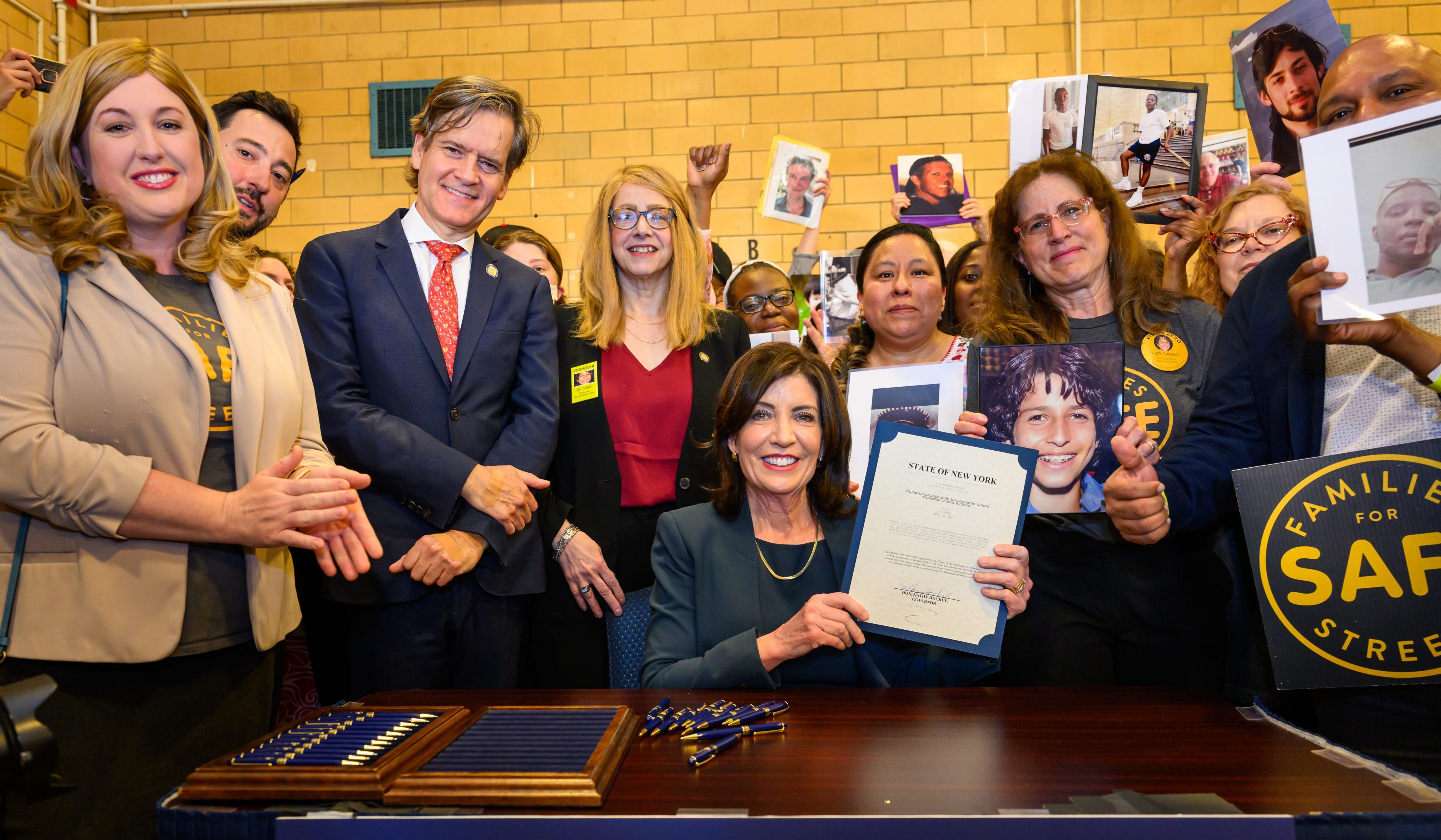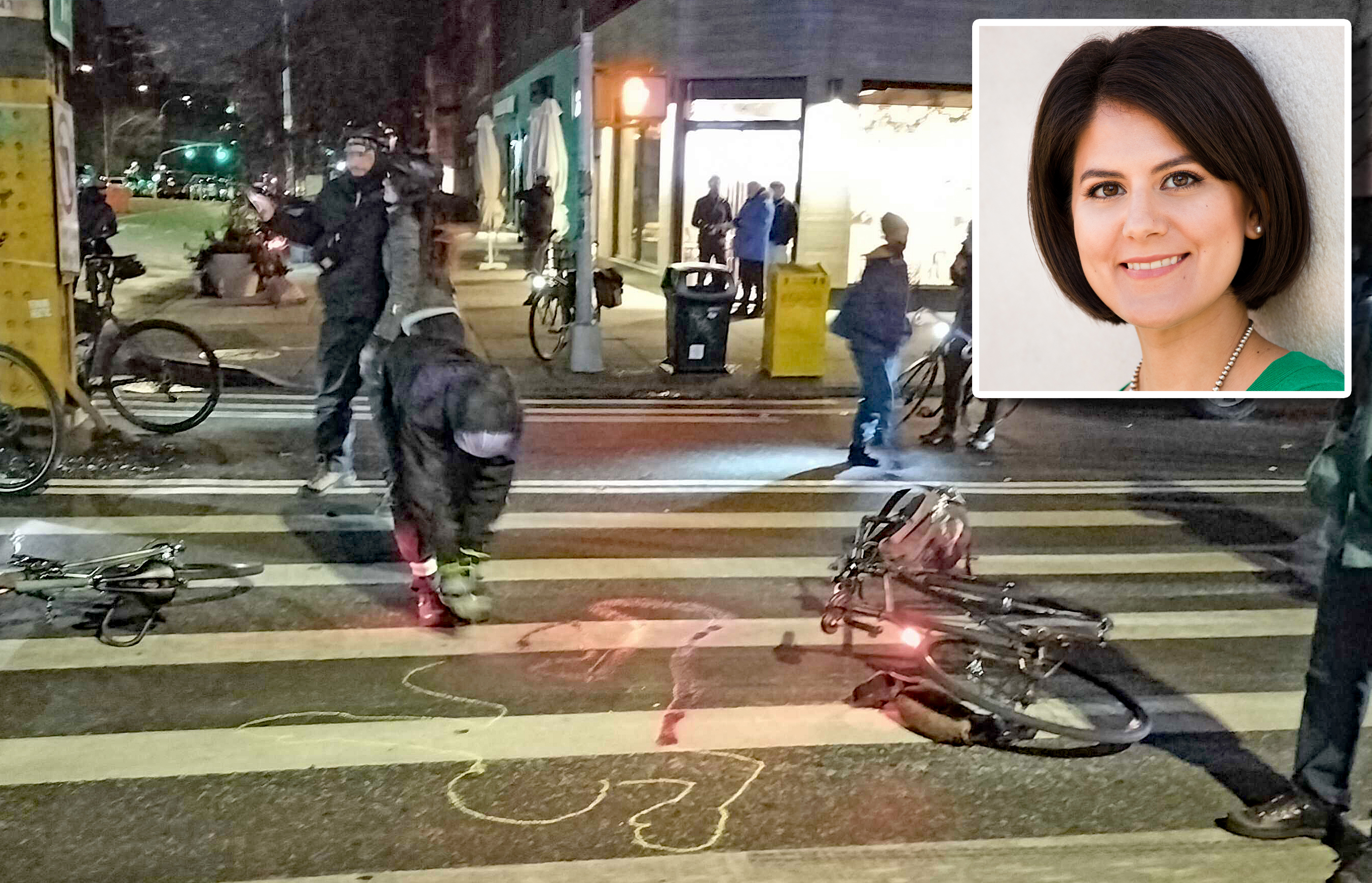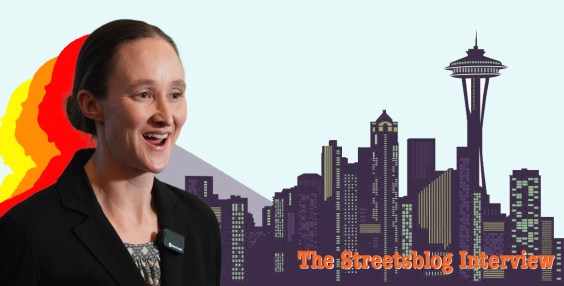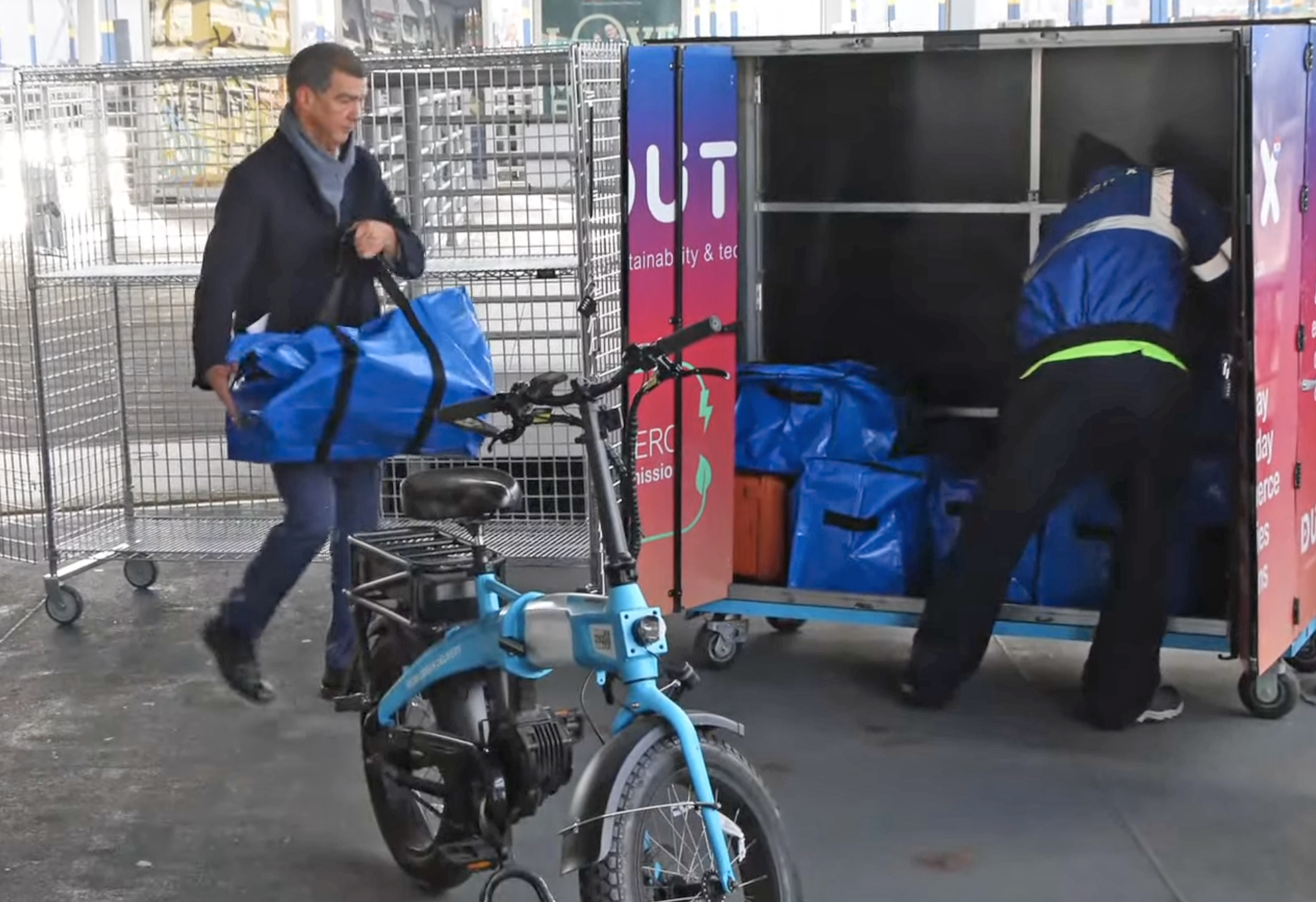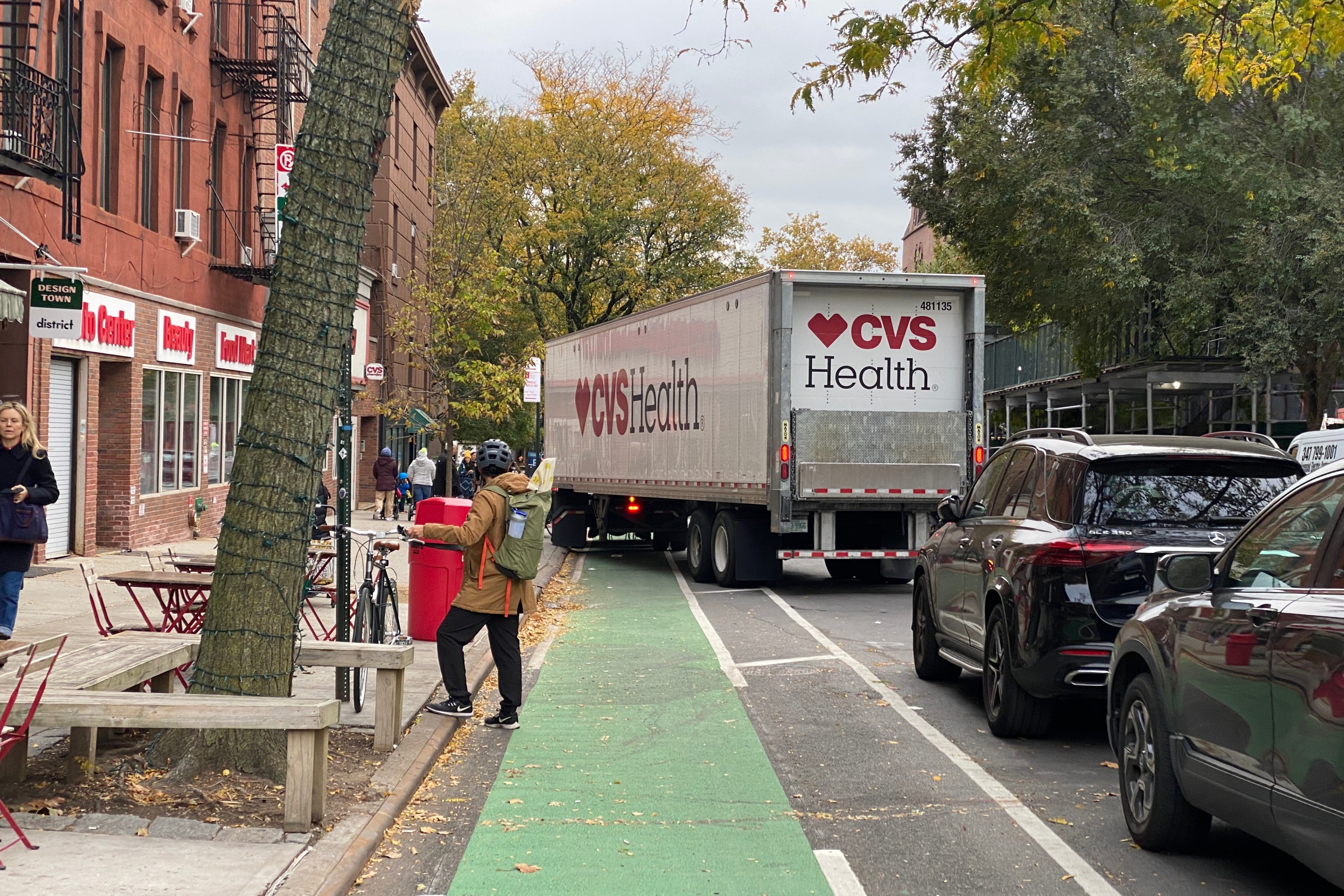Gov. Hochul signaled her support on Thursday for reauthorizing the city's tiny red light camera program — but stopped short of calling for an expansion of the decades-old program.
"As a parent who sent my children to schools, watched them graduate, I don’t understand why there’s any controversy around allowing localities to make that decision whether or not they want to have red-light cameras and speed zones," Hochul told reporters in a response to a question from Streetsblog about whether she supported renewing and expanding the program.
The city's three-decade-old traffic cameras are set to expire by December, and a bill in the Albany legislature would renew the initiative for another six years and expand the number of devices from just 150 intersections to 1,325 crossings, or about 10 percent of the city.
Hochul did not specify whether she supported adding more cameras, but she told reporters at Thursday's bill signing ceremony for "Sammy's Law" that she favored giving the city power over local street safety measures.
The red light camera bill's sponsor, Brooklyn State Sen. Andrew Gounardes, said the measure was "something we can do at the state level to ensure the city has the tools it needs to protect children and families on our streets."
"I fully agree with the governor here: we should absolutely be letting New York City install red light cameras at any intersection where they can save lives," Gounardes said in a statement.
The Adams administration has gotten behind the expansion, with DOT Commissioner Ydanis Rodriguez traveling to Albany in March to push lawmakers for it, Gothamist reported.
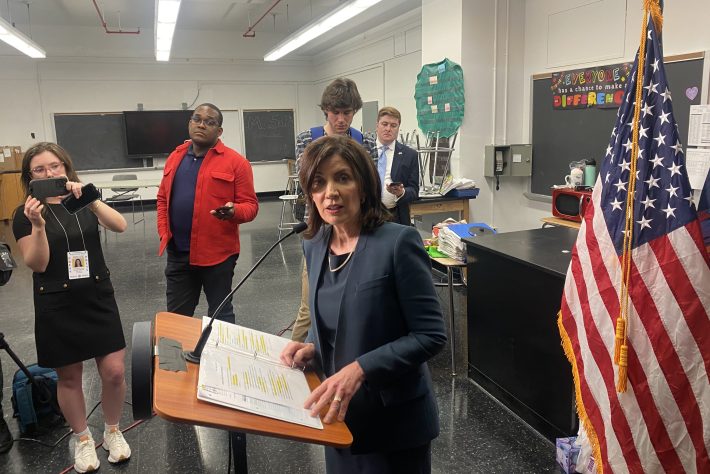
The governor's comments came after a celebration for the recently passed budget measure enabling the city to lower its speed limit to 20 miles per hour. Flanked by Mayor Adams, state pols and advocates, Hochul ceremonially signed the measure at the Park Slope middle school of Sammy Cohen Eckstein, who was hit by a driver near his home in 2013 when he was 12-years-old.
The legislation, named "Sammy's Law," passed as part of the state budget last month after a hard-fought, years-long battle by advocates and extensive closed-door negotiations in Albany that finally overcame opposition in the Assembly, and marked the first time the lawmakers allowed the citywide speed limit to go down since 2014.
The decade-spanning battle made clear that reducing traffic violence happens through systemic changes like these, said Sammy's mom, Amy Cohen.
"I always thought I could create an invisible shield around my family to keep them safe," Cohen said. "But I’ve come to learn that that protective shield for our loved ones is really a communal responsibility and requires laws and policies that address the systemic causes of traffic violence, laws like the one we are here today celebrating."
Before state lawmakers leave the Capitol at the end of June, activists want them to pass a slate of additional bills, including renewing and growing the red light cameras, requiring speed governors for serial reckless drivers, and requiring transportation officials to consider complete street designs.
However, the crucial red light extension faces an uphill battle, as much of the energy by advocates and lawmakers has been sucked up by Sammy's Law, according to an Albany source.
The program will probably get renewed, but any expansion will likely be more modest than 10 percent of city intersections, the source said.
At the Thursday press event, Hochul generally favored handing over these kinds of powers to the city, but did not specifically call for an expansion of the red-light camera program. She also called traffic violence "accidents," a term street safety advocates decry because it obscures responsibility from drivers and implies that crashes are just an unavoidable thing.
"My view of the world is, local governments should be making these decisions, you should not have to go all the way to Albany, you should just be able to go to your mayor and your City Council," the state's chief executive said. "We’ve seen too many tears shed, families shattered, communities traumatized by too many preventable crashes and accidents."
Mayor Adams, who also again used the disfavored terminology, touted the safety benefits of slower speeds, while hedging plans for a blanket roll out across the Big Apple.
"All streets are not the same and we should not have speed limits within the entire city based on the makeup of one belief or one philosophy," Adams said. "If you’re going against slowing New Yorkers down, you’re going against the results of stopping these tragedies from taking place. You can’t have it both ways — slow down New Yorkers."
